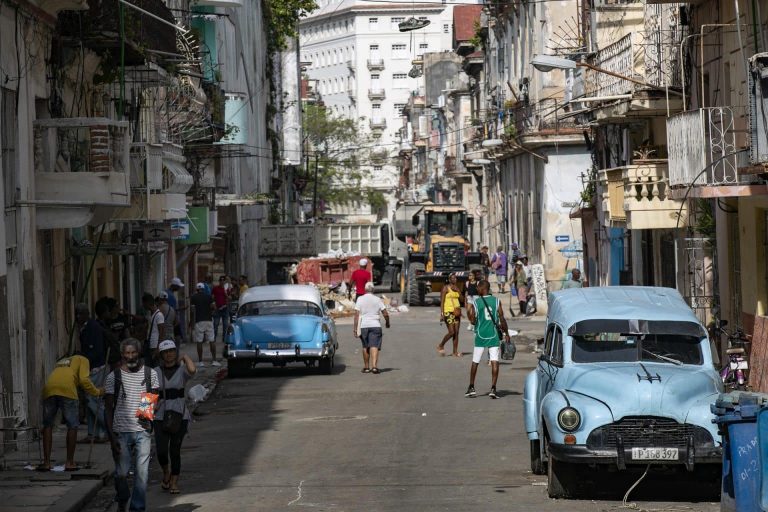22 de julio 2024

Children of Exile: The Births “Sowing Hope” in the Camp of Nicaraguan Farmers

PUBLICIDAD 1M
PUBLICIDAD 4D
PUBLICIDAD 5D
The law targets Cubans abroad who engage in “acts contrary to the high political, economic, and social interests” of the island

People walk down a street in downtown Havana, Cuba. Photo: EFE | Confidencial
The Cuban parliament approved the Citizenship Law this Friday, which, among other things, allows the regime to revoke the citizenship of those who engage in “acts contrary” to the country’s political “interests.”
The approved law empowers the president of Cuba to strip citizenship by decree from those who enlist “in any type of armed organization with the aim of attacking” the country or its citizens, and from those who engage in “acts contrary to the high political, economic, and social interests” of the island.
The affected person must be residing outside the country or hold another nationality, although exceptions are considered for serious reasons, apparently to denationalize government opponents inside Cuba.
The law’s promoters have argued that this power would only be used “exceptionally” and that its true scope has been exaggerated from abroad.
Several organizations and human rights defenders have warned about the potential political use of denationalization in Cuba, pointing to Nicaragua as a recent example.
The new law, on the other hand, establishes that Cuban citizenship is acquired by being born on the island and, in the case of foreigners, through naturalization.
The text approved by the National Assembly also states that acquiring a foreign citizenship does not imply the loss of Cuban citizenship.
It also contemplates that children of Cuban parents born on the island who have renounced, lost, or were deprived of Cuban citizenship, can apply for it when they reach adulthood.
Minutes after its approval, parliamentarians also gave the green light to the Foreigners Law, which regulates foreign citizens on the island.
Both laws, along with the Migration Law, approved on the same day, are the documents that generated the most expectation inside and outside the country during the July meeting of the twice annual parliamentary sessions, which last less than a week.
The new Migration Law allows authorities to prohibit entry into Cuba to persons related to “hostile actions against the political, economic, and social foundations of the Cuban State” or for “reasons of defense and national security.”
It also authorizes the prohibition of departure from the country for any person for “reasons of defense and national security,” for “lacking the established authorization” if considered a priority worker for the State, to “ensure the security and protection of official information,” and even for the “public interest.”
The law is set to take effect 180 days after being formalized by the National Assembly.
This article was published in Spanish in Confidencial and translated by Havana Times. To get the most relevant news from our English coverage delivered straight to your inbox, subscribe to The Dispatch.
PUBLICIDAD 3M
Agencia de noticias internacional con sede en Madrid, España. Fundada en Burgos durante la guerra civil española en enero de 1939.
PUBLICIDAD 3D